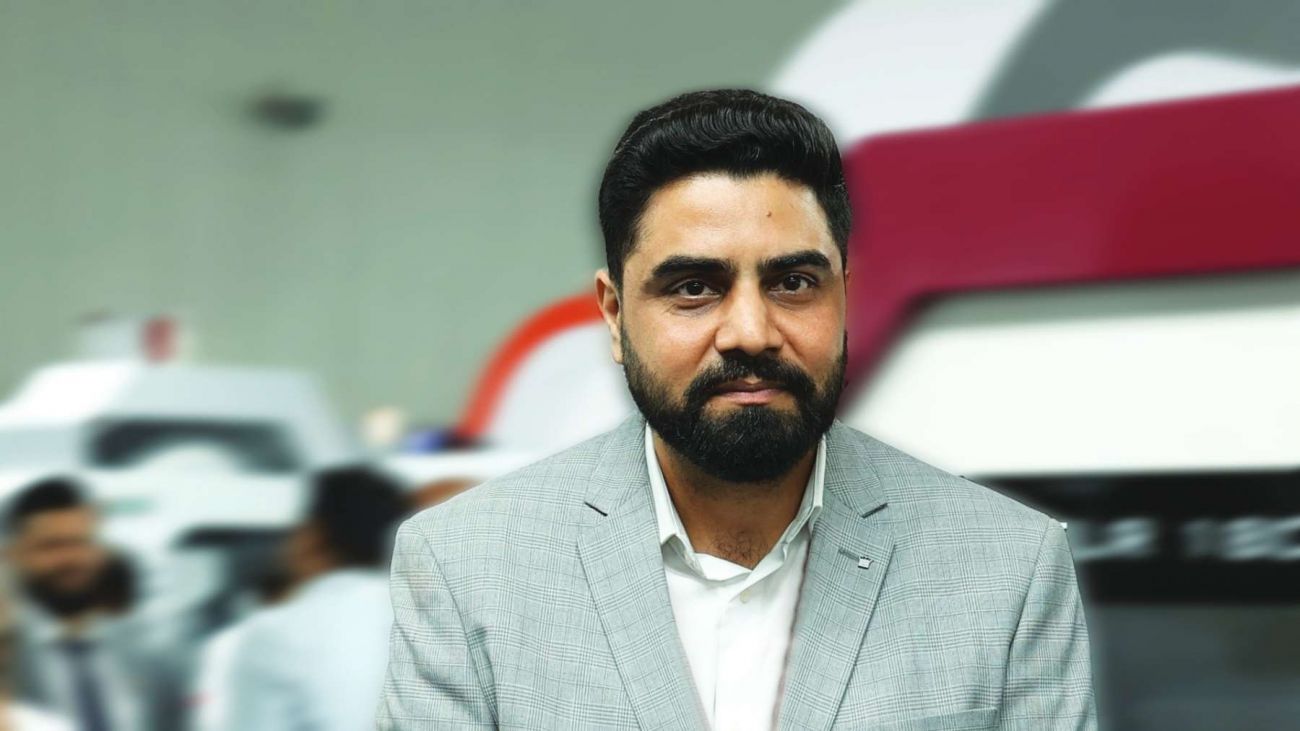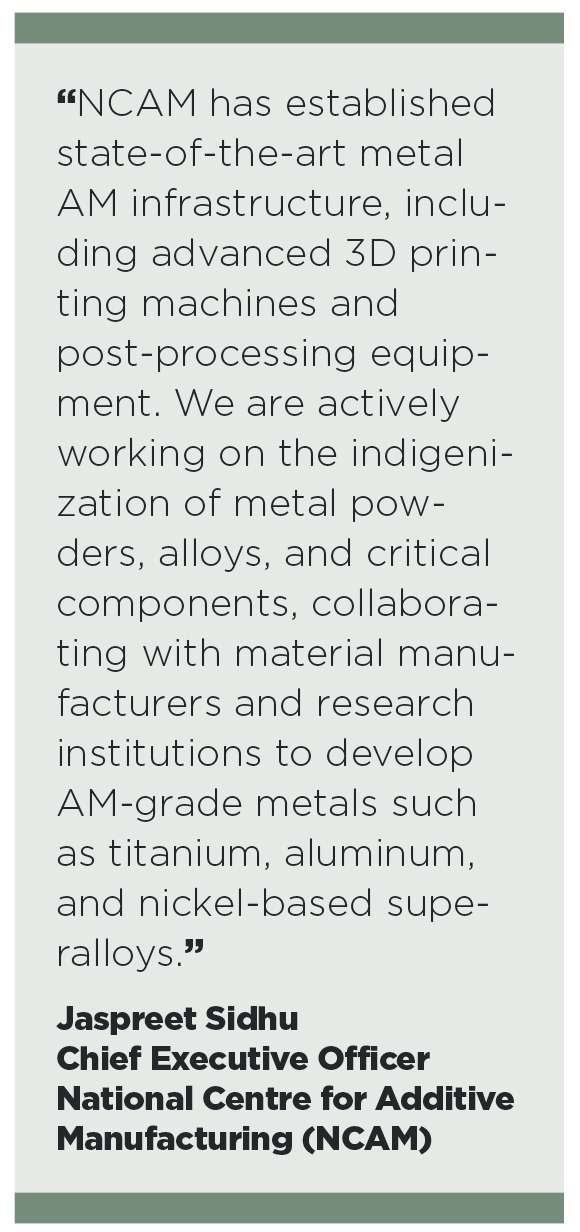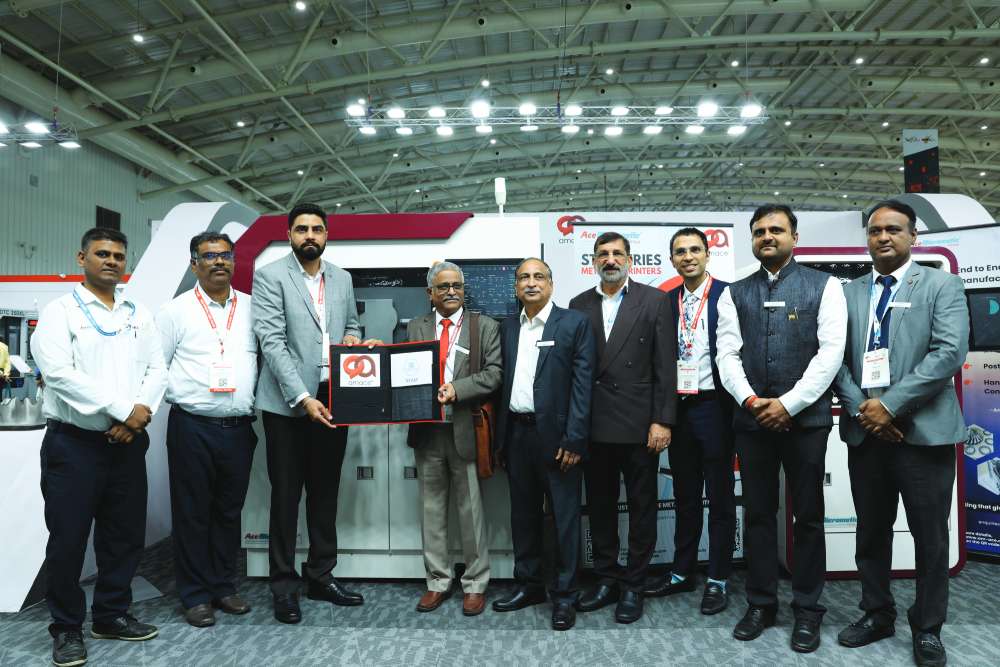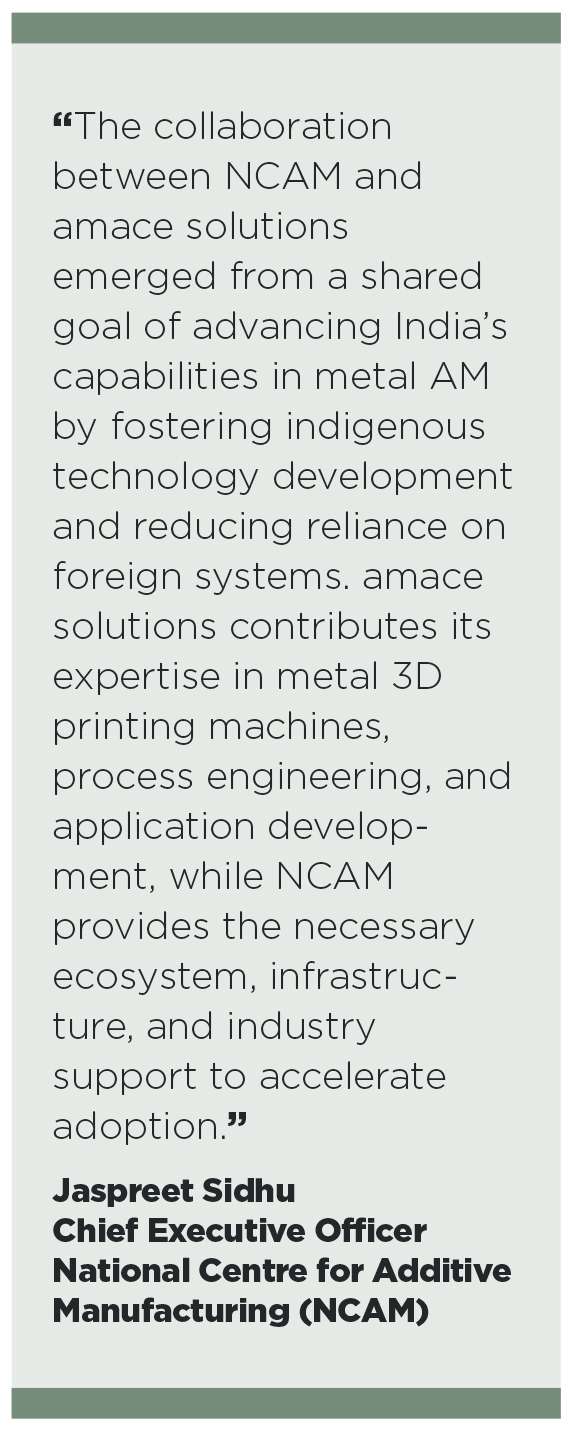STRENGTHENING INDIA’S AM CAPABILITIES

Jaspreet Sidhu, Chief Executive Officer, National Centre for Additive Manufacturing (NCAM), in this in-depth conversation with MMI’s Editor-in-Chief Soumi Mitra, shares the apex body’s initiatives toward positioning India as a leading force in additive manufacturing, the several challenges it faces in this endeavor, and the ways to address them.
What is the primary mission of NCAM, and how does it contribute to India’s additive manufacturing landscape?
The National Centre for Additive Manufacturing is dedicated to accelerating the adoption, innovation, and industrialization of Additive Manufacturing (AM) in India. By fostering collaboration between the Government, industry, and academia, NCAM plays a pivotal role in implementing the National Strategy for Additive Manufacturing and strengthening the country’s AM ecosystem. It supports R&D, startup incubation, skill development, and industry adoption, enabling businesses to harness AM for prototyping and production.
Additionally, NCAM facilitates standardization and certification, ensuring high-quality manufacturing practices. By providing access to advanced infrastructure, funding, and training, it empowers startups, MSMEs, and large industries to integrate AM into their operations. These efforts reduce import dependency, promote local innovation, and enhance India’s global competitiveness in key sectors such as Aerospace, Healthcare, and Automotive. NCAM’s initiatives position India as a leading force in additive manufacturing, driving technological progress and economic growth.
How does NCAM support industries in adopting additive manufacturing technologies?

NCAM as an apex body supports industries in adopting additive manufacturing technologies by addressing critical challenges such as fiscal and non-fiscal incentives, low-cost R&D and policy support. It actively organizes webinars, seminars, workshops, and conferences to foster awareness, identify industry challenges, and drive collaborative solutions. A key priority is developing a comprehensive standards and certification framework for AM components, materials, and processes in collaboration with leading domestic and international certification bodies such as the Centre for Military Airworthiness & Certification (CEMILAC), the American Society of Mechanical Engineers (ASME), and the American Society for Testing and Materials (ASTM).
It also supports the industry in adopting and adhering to global standards, ensuring product competitiveness in domestic and international markets. Through strategic collaborations with global stakeholders, it facilitates the adoption of best practices to strengthen India’s AM ecosystem.
Additionally, NCAM conducts outreach initiatives and award programs to expand industry engagement and showcase groundbreaking innovations. Playing a crucial advisory role, it provides policy recommendations to the Government bodies on standards (BIS), taxation, customs duties, and easing restrictions on material imports, driving the overall growth and competitiveness of the AM sector.
What are some of the key initiatives or projects that NCAM has undertaken to promote metal AM?
NCAM has established state-of-the-art metal AM infrastructure, including advanced 3D printing machines and post-processing equipment.
We are actively working on the indigenization of metal powders, alloys, and critical components, collaborating with material manufacturers and research institutions to develop AM-grade metals such as titanium, aluminum, and nickel-based superalloys.
It also drives industry adoption by co-developing metal AM applications in sectors like Aerospace, Defence, Space, Healthcare, and Automotive, supporting projects such as the repair of aerospace components, customized medical implants, and advanced tooling solutions.
Additionally, it focuses on workforce development by conducting training programs and certification courses in partnership with the industry and academia, covering essential aspects like design for AM (DfAM), process optimization, post-processing, and quality assurance.
On the policy front, NCAM plays an advisory role in shaping government policies, fiscal incentives, and regulatory frameworks to accelerate metal AM adoption, advocating for favorable taxation policies, import duty relaxations, and funding support for startups and enterprises. Through these efforts, NCAM is strengthening India's capabilities in metal AM, fostering innovation, reducing import reliance, and positioning the country as a global leader in advanced manufacturing.
| NCAM facilitates standardization and certification, ensuring high-quality manufacturing practices. By providing access to advanced infrastructure, funding, and training, it empowers startups, MSMEs, and large industries to integrate AM into their operations. |
How does NCAM facilitate research, skill development, and industrial adoption of additive manufacturing?
 |
| NCAM and amace solutions will spearhead collaborative R&D projects to explore new materials and applications in metal AM. |
NCAM facilitates research, skill development, and industrial adoption of AM through a multi-faceted approach. It supports the indigenous design and development of prototypes, products, and new technologies while identifying key components in the value chain that are currently imported.
By recommending a phased manufacturing program, NCAM aims to localize the production of machines, materials, software, and design solutions in the medium and long term. It fosters partnerships between the industry and academia to identify opportunities in globally focused sectors such as Aviation, Defence, Space, Healthcare, and Automotive, as well as emerging areas aligned with national priorities, such as low-cost housing.
It also drives application development and research by reducing barriers to entry in this capital-intensive industry. Additionally, it collaborates with industry experts and organizations to design skilling programs and conduct hands-on workshops. By standardizing job roles and skillsets, NCAM ensures alignment between industry needs and academic training, bridging the gap between education and employment in the AM sector.
What challenges does NCAM face in advancing additive manufacturing in India, and how is it addressing them?
NCAM faces several challenges in accelerating AM adoption in India, including high costs, limited local production of AM materials, regulatory gaps, and a shortage of skilled professionals. To tackle these issues, NCAM provides shared infrastructure to lower entry barriers for startups and industries, reducing the need for heavy capital investment. It collaborates with research institutions and manufacturers to develop indigenous AM materials, minimizing dependence on imports.
Additionally, NCAM is working with regulatory bodies to establish certification frameworks, ensuring reliability and compliance in AM processes. To address the skill gap, it conducts specialized training programs and partners with academic institutions to integrate AM into technical education. Awareness and industry adoption are further promoted through workshops, pilot projects, and policy recommendations that advocate incentives for AM businesses. These initiatives collectively strengthen India’s AM ecosystem, driving technological progress and global competitiveness.
|
Playing a crucial advisory role, it provides policy recommendations to the Government bodies on standards (BIS), taxation, customs duties, and easing restrictions on material imports, driving the overall growth and competitiveness of the AM sector. |
How does NCAM align with India’s ‘Make in India’ and ‘Atmanirbhar Bharat’ initiatives?
NCAM aligns with India’s ‘Make in India’ and ‘Atmanirbhar Bharat’ initiatives by fostering domestic innovation, reducing import dependence, and positioning India as a global hub for AM. It provides world-class infrastructure, including advanced AM machines and facilities, to support R&D, innovation, and product prototyping across various sectors. Additionally, it nurtures startups by guiding them from technology readiness (TRL 3-8) to full-scale product development and manufacturing (TRL 9-10).
To promote import substitution, NCAM identifies key components in the AM value chain that can be indigenized and develops phased manufacturing programs to localize the production of critical materials, software, and hardware, reducing reliance on imports.
Furthermore, NCAM advances research, product development, and technology transfer, facilitates funding opportunities, and collaborates with industry stakeholders to enhance India’s global competitiveness in AM. Through these efforts, NCAM strengthens the country’s self-reliance in advanced manufacturing and contributes to India's manufacturing excellence in emerging technologies.
What led to the collaboration between NCAM and amace solutions? How does this partnership enhance India’s self-reliance in metal additive manufacturing?

The collaboration between NCAM and amace solutions emerged from a shared goal of advancing India’s capabilities in metal AM by fostering indigenous technology development and reducing reliance on foreign systems. amace solutions contributes its expertise in metal 3D printing machines, process engineering, and application development, while NCAM provides the necessary ecosystem, infrastructure, and industry support to accelerate adoption.
This partnership strengthens India’s ability to design, manufacture, and deploy metal AM solutions tailored to domestic needs, making high-performance manufacturing more accessible to key industries such as Aerospace, Healthcare, and Automotive By driving localized innovation, enhancing material research, and facilitating industrial integration, this initiative plays a crucial role in reinforcing India’s position as a competitive player in advanced manufacturing. Furthermore, it supports workforce development and standardization efforts, ensuring long-term sustainability and global recognition for India’s metal AM sector.
What specific technologies or innovations will this collaboration bring to the Indian manufacturing sector?
NCAM and amace solutions will spearhead collaborative R&D projects to explore new materials and applications in metal AM. Joint initiatives will focus on educating and enabling industries to integrate metal AM into their manufacturing ecosystems, ensuring faster adoption across various sectors. The partnership will work towards unlocking new use cases and practical applications of metal AM by combining NCAM’s resources with amace solutions’ technical expertise and customer insights.
|
NCAM’s new facility at Osmania University is a significant step toward strengthening India’s AM ecosystem by providing state-of-the-art infrastructure, fostering research collaborations, and enabling industry-driven innovation. |
How does NCAM’s new facility at Osmania University strengthen India’s additive manufacturing ecosystem, and what key advancements can industries expect from this initiative?
NCAM’s new facility at Osmania University is a significant step toward strengthening India’s AM ecosystem by providing state-of-the-art infrastructure, fostering research collaborations, and enabling industry-driven innovation. This center serves as a hub for cutting-edge AM technology development, offering access to advanced 3D printing machines, material research labs, and post-processing capabilities. By being housed within a premier academic institution, it bridges the gap between the academia and industry, facilitating joint research, talent development, and real-world application testing.
Industries can expect several key advancements from this initiative, including accelerated R&D in AM materials, processes, and applications, development of cost-effective and indigenous AM solutions, and enhanced skill-building programs to create a highly trained workforce. Additionally, the facility will play a crucial role in standardization, certification, and policy advocacy, ensuring seamless industrial adoption of AM technologies. This initiative strengthens India’s self-reliance in AM, positioning the country as a global leader in advanced manufacturing.
 |
SOUMI MITRA |




 Facebook
Facebook.png) Twitter
Twitter Linkedin
Linkedin Subscribe
Subscribe